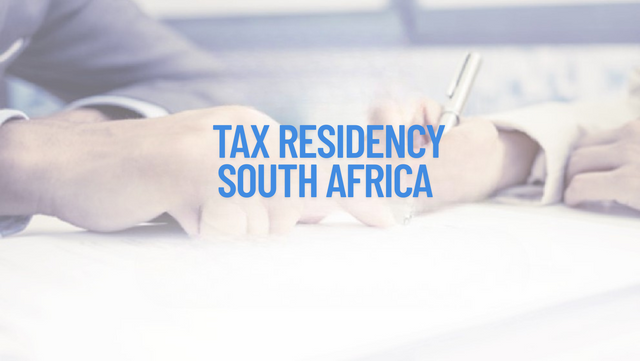A Step-by-Step Guide to Ceasing Tax Residency in South Africa
South Africans who plan to move away for good or work in another country for a long time might want to stop being tax residents. This can help them avoid paying taxes on money they make worldwide. To do this the right way, you need to meet certain rules set by the South African Revenue Services (SARS). It's also important to understand what it means to give up your tax residency.(https://fmjfinancial.co.za/navigating-tax-residency/)
What Does it Mean to End Tax Residency?
Ending tax residency means no longer being considered by SARS as being resident in South Africa, meaning only tax on income generated within its borders applies. After ending tax residency, taxes no longer need to be paid on foreign-sourced income - though capital gains tax (CGT) exit charges may apply.
Who Qualifies for Tax Residency?
You may qualify to end their tax residency if one or more of the following criteria is met:
Permanent Emigration - By leaving South Africa permanently and settling elsewhere, and no intention to return, permanent emigration has taken place.
Ordinarily Resident Test - No longer see South Africa as your principal home or primary place of return, this may apply if: Your financial and personal ties to South Africa have been severed or you have acquired permanent residency or citizenship of another country.
Physical Presence Test - You do not meet the time-based criteria for tax residency, meaning: Your stay outside South Africa during this tax year was more than 91 days and less than 915 in total over the last five tax years.
Financial Emigration Under Pre-2021 Rules - Financial Emigration Before 2021 Changes - If you left South Africa through the Reserve Bank prior to March 2021, you might have already ended your tax residency. Tax Residency Outside South Africa - If another country has recognized you as its tax resident under a Double Taxation Agreement (DTA), you can ask to stop your South African tax residency.
Tax Residency in Another Country - If you have been recognized as tax resident of another country under a Double Taxation Agreement (DTA), then you may apply to discontinue South African tax residency.
Step-by-Step Guide to Cease Tax Residency
Step 1: Establish Non-Residency Status
To show you're not a resident anymore, you need to prove you've moved and made a new home in a different country. This might include Getting permanent resident status or becoming a citizen somewhere else
Closing all financial ties in South Africa (e.g. selling property or closing bank accounts). Switching your tax residency status in your new country.
Step 2: Submit Declaration to SARS
Complete and submit an RAV01 form via eFiling to update your status. Similarly, submit a Tax Residency Cessation Request including supporting documents like foreign tax residency certificate(s), proof of emigration certificates and financial statements to SARS to renounce tax residency status in South Africa.
Step 3: Submit Capital Gains Tax (Exit Tax)
SARS considers relinquishing your tax residency status as the equivalent of disposing of worldwide assets, thus incurring Capital Gains Tax (CGT). Therefore, an exit tax could apply depending on their market value; with certain exemptions such as South African property or retirement funds applying.
Step 4: Acquire Non-Resident Tax Status Confirmation
Once SARS processes your request, they will issue confirmation of your non-resident tax status for use during tax compliance in your new country of residence.
Tax Implications When Ceasing Residency
After you leave South Africa, only income generated locally such as rentals or dividends will be subject to South African taxes; any double taxation agreements (DTAs) between your new country of residence and South Africa could apply as well.
South African retirement annuities may be withdrawn after three years of non-residency, subject to tax.
Final Thoughts
Ceasing tax residency in South Africa can be complex and it is vital that the correct procedures are followed to avoid incurring penalties from SARS. Consulting a tax professional is invaluable in guiding this process and ensure that compliance with their regulations is achieved.https://fmjfinancial.co.za/navigating-tax-residency/
